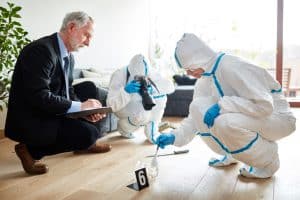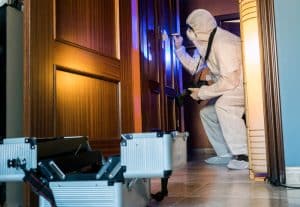Explorations in Forensics Program at Stony Brook University
Are you fascinated by crime scene investigations and the art of solving complex mysteries? Are you a budding Sherlock Holmes or a real-life CSI enthusiast? If so, Stony Brook University’s Explorations in Forensics Program could be your stepping stone toward an exciting career in the world of forensic science. In this comprehensive blog, we’ll take you on a journey through this remarkable program, answering all the essential questions you may have about it.
What is the Explorations in Forensics Program at Stony Brook University?
The Forensic Science program is all about applying different scientific fields to legal matters. It covers subjects like Biology, Chemistry, Physics, Biochemistry, and Earth Science. This program will help you understand these scientific areas within the context of law.
During the program, you’ll get hands-on experience and dive into various aspects of Forensic Science. It’s not just about learning facts; it’s about thinking critically, investigating, and solving problems. This program is also a great way to figure out if you want to study forensics in high school.
Throughout the five days of the program, you’ll focus on developing practical skills and techniques. These skills will come in handy when you work on a mock crime scene at the end of the week. It’s a week filled with hard work, learning, and, most importantly, fun!
Why should you join the Explorations in Forensics Program at Stony Brook University?
This program begins with an introductory session on forensic science, followed by a hands-on, interactive simulation of a crime scene investigation. Over the course of 5 days, students will engage in activities that build upon their existing knowledge and introduce new concepts. They will also learn about real-life cases where forensic science played a key role in solving major criminal investigations.
By the end of the program, students will have gained knowledge and practical experience in various areas of forensic science. These include:
Branches of Forensic Science
In this program, you’ll learn about the various parts of forensic science. This includes digital forensics, which deals with electronic data, biology for examining biological aspects like DNA, and chemistry for analyzing chemical substances. Each area has its own special way of uncovering clues and solving different types of crimes.
Lie Detecting
This topic teaches you how to recognize when someone might not be telling the truth. You’ll learn to observe people’s body language and facial expressions, which can give away signs of lying. It also covers how to use technological tools such as polygraph tests, which measure physical responses to help determine if someone is being truthful.
Memory Exercises
In this part of the course, you’ll engage in various activities designed to strengthen your memory. These exercises are especially useful in forensic science for helping you recall important details more accurately. This skill is vital when investigating crimes, as remembering small pieces of information can often make a big difference in solving a case.
Anthropology
Here, you’ll learn about the role of anthropology in crime-solving. This involves examining human bones and remains to gather clues. It’s a crucial part of forensic science used for identifying who the victims were and figuring out the circumstances of their deaths. This knowledge can provide vital information in criminal investigations.
Logic Problem Solving
This section teaches you how to apply logical reasoning to tackle challenging problems. It’s about using clear, rational thinking to connect different pieces of evidence. This ability is key in forensic science, as it helps you make sense of various clues and leads, ultimately helping in solving complex cases.
Crime Scene Processing
In this part of the course, you’ll learn the essential steps for managing a crime scene. This includes how to keep the scene secure to prevent evidence from being disturbed. You’ll also learn how to collect evidence, ensuring nothing important is missed systematically. Plus, it covers the importance of recording everything you find at the scene. All these steps are critical for ensuring that the evidence is usable for solving the crime.
Fingerprinting
This section teaches you about the process of collecting and studying fingerprints from crime scenes. Since no two fingerprints are the same, they are an extremely valuable tool in identifying individuals who may be connected to a crime. You’ll learn the techniques used to gather fingerprints and how to examine them to find crucial clues.
Lip Printing
In this topic, you’ll learn that just like fingerprints, every person has unique lip prints. The course will guide you on how to gather and examine these prints, which can be found at crime scenes. Analyzing lip prints helps in finding important clues and can play a role in identifying individuals involved in a crime.
Odontology
This section covers the study of teeth and their role in forensic science. You’ll learn how dental records can be used to identify victims, especially when other means of identification aren’t possible. This also includes analyzing bite marks found at crime scenes, which can be crucial in linking suspects to the crime. This field combines dentistry knowledge with criminal investigation techniques.
Shoe Printing
This part of the course teaches you about identifying and studying shoe prints found at crime scenes. Shoe prints can be vital evidence, as they can connect a suspect to a specific location or provide insights into what happened during the crime. You’ll learn the methods for collecting shoe print evidence and how to analyze them to gather important information for an investigation.
Handwriting Analysis
Here, you’ll learn about the process of analyzing handwriting. This technique is not just about figuring out who wrote something but also about understanding their state of mind when they wrote it. By examining the style and characteristics of handwriting in documents, you can gather clues about the writer’s identity and emotions, which can be helpful in investigations.
Hair and Fiber Analysis
This topic focuses on how to study hairs and fibers collected from crime scenes. You’ll learn techniques to determine their origin, which can be crucial in solving crimes. By analyzing these materials, you can connect people or items to certain places or other individuals involved in the incident. This kind of analysis plays a key role in piecing together evidence and building a case.
Chromatography
In this course, you’ll learn about chromatography, a technique used to separate different chemicals. This method is particularly useful in forensic science for analyzing substances that are found at crime scenes, such as drugs or poisons. By separating these substances into their individual components, you can identify what they are, which is crucial for investigating and solving crimes.
Blood Typing
This topic teaches you how to figure out the blood types of samples collected from a crime scene. Knowing the blood type of these samples is important because it can either point toward or rule out certain suspects or victims in a case. You’ll learn the process of testing and interpreting blood types, which is a fundamental skill in forensic investigations.
Blood Splatter
In this part of the course, you’ll learn about examining blood splatter found at crime scenes. By analyzing the way blood has splashed or spread out, you can gather significant information about the events that occurred during the crime. This study helps in understanding the direction, speed, and nature of the actions that caused the blood splatter, providing key insights into the investigation.
Toxicology
This section covers toxicology, which is about understanding how various chemicals and poisons impact the human body. It’s an important area in forensics, especially when figuring out the cause of death or finding out if there were drugs or poisons in someone’s body during a crime.
DNA Fingerprinting
Here, you’ll learn about DNA fingerprinting, a method used to analyze a person’s DNA. This technique is extremely useful in identifying people involved in a crime. DNA fingerprinting can provide conclusive evidence and is a key element in many criminal investigations, helping to confirm or dismiss suspects.
Each topic provides vital skills and knowledge for understanding and solving crimes through forensic science.
How Does the Explorations in Forensics Program at Stony Brook University Benefit Society and the Forensic Science Industry?
The Explorations in Forensics Program at Stony Brook University holds significant relevance both in societal and industry contexts. Here are some key aspects of its importance:
A. Societal Impact
The program teaches students about forensic science, preparing them to become experts who can help solve crimes in the future. This is really important for keeping people safe and making sure the legal system works well.
Students learn why forensic science is so important for keeping everyone safe. This helps spread knowledge and gets more people interested in a field that’s crucial for public safety.
The program motivates students to think about working in forensic science. This means more skilled people in the future to help maintain law and order in society.
B. Industry Relevance
More and more forensic scientists are needed in police departments and private companies. The program helps meet this need by teaching young students and getting them interested in this career early.
The students in this program learn about the newest methods and tools used in forensic science. This way, they can help bring new ideas and techniques to the field, making sure it stays current.
Forensic science includes many different areas, like chemistry, biology, and computer science. This program gets students ready for many kinds of jobs in forensics, making them more flexible and able to do different things.
C. Research and Development
The program encourages students to be curious and ask questions about science, which is really important for making forensic methods better over time. It teaches them to think like scientists, always exploring and researching, which is key to improving the ways we solve crimes using science.
The program opens doors for students to work alongside both educational institutions and companies in the forensic science field. This teamwork leads to new and creative ways of solving problems and helps bring about progress in the world of forensic science. By bringing together different perspectives and expertise, it paves the way for groundbreaking discoveries and improvements in how forensic science is practiced.
The Explorations in Forensics Program at Stony Brook University not only prepares students for a career in a vital and dynamic field but also contributes to the broader societal goal of maintaining law and order through scientific means. It also supports the forensic science industry by providing a foundation of knowledge and skills essential for the continued evolution and effectiveness of this field.
How do you get into the Explorations in Forensics Program at Stony Brook University?
This program is for students who have a keen interest in science, are naturally curious, and enjoy learning in a fun way. It’s an excellent opportunity to see how scientific concepts taught in school are applied in real-world crime-solving and legal processes.
To apply, students need to complete the application process, which includes filling out the application form, providing two letters of recommendation, writing essays, and submitting their latest transcript and report card. Stony Brook University’s admissions group selects participants based on their academic achievements, the quality of their recommendation letters, and their essays. They have a limit of 24 students for this program. Also, you don’t need to pay any fees when you apply!
How do I apply to the Explorations in Forensics Program at Stony Brook University?
I. Gathering Your Documents
- Prepare to write a compelling essay on why you want to join the program. Save it as a PDF named “YourLastName YourFirstName Essay.”
- Have your academic transcripts ready for upload.
- Make sure you have a digital copy of your most recent report card.
- If you’re applying for a scholarship, you’ll need a letter from your school or proof of eligibility for free or reduced lunch on official letterhead.
II. Online Application
Start by submitting an online application through the official Stony Brook University website. You need to fill out your personal information:
- Enter your full name.
- Provide your complete address, including street, city, state, and zip code.
- Add your phone number and email address.
- Include your parent’s email for extra contact.
- Choose your gender.
- Enter your birth date in MM/DD/YEAR format.
- Mention the high school you attend and when you expect to graduate.
- Select your preferred t-shirt size.
III. Choosing Your Session: Pick the dates you want to attend.
IV. Applying for a Scholarship (If Needed)
There are only a few full or partial scholarships available, and they’re specifically for applicants who qualify for the Federal free or reduced lunch program. To apply for one of these scholarships, you need to provide a letter.
This letter should either be from an official at your school district or the notice you got confirming your eligibility for the free or reduced lunch program. Make sure it’s on official letterhead. It’s very important to include this letter with your application if you want to be considered for a scholarship.
V. Uploading Your Documents
Upload your essay, transcript, report card, and scholarship letter (if applicable). Ensure each document is correctly named and formatted.
VI. Review and Submit Your Application:
Check all your details and documents for accuracy. It’s best to complete the application in one sitting to avoid losing any information. Remember, being thorough and careful with your application is key to a successful submission!
VII. Transcripts and Recommendations
Provide your high school transcripts and letters of recommendation as part of your application package. Students should pass on the link to the Teacher Recommendation Form to their teachers, who are required to complete the recommendation forms for them.
VIII. Personal Statement
In crafting your personal statement for the forensic science program, it’s important to create a compelling narrative that highlights your deep interest in the field. Begin by discussing what initially drew you to forensic science, such as a specific event, class, or book. Include any relevant experiences, like science-related projects or workshops, that have fueled your passion.
Clearly articulate your reasons for wanting to join this program, focusing on what you aim to learn and how it aligns with your future aspirations. Let your unique personality come through in your writing to give the admissions committee a sense of who you are beyond your academic achievements.
Strive for clarity and brevity in your writing, avoiding overly technical language. Make sure to thoroughly proofread your statement for any errors, as a well-written and polished piece leaves a strong impression.
Above all, be honest and true to yourself in your statement; authenticity often resonates more than saying what you believe the committee wants to hear. Your statement is your opportunity to stand out by showcasing your genuine enthusiasm and commitment to the world of forensic science.
How hard is getting into the Explorations in Forensics Program at Stony Brook University?
Participants in the program are chosen based on their good grades, impressive recommendation letters, and well-written essays. The program has a limit, accepting only up to 24 students. The program cost is $600.
Best After-School Activities for Future Forensic Scientists at Stony Brook University
For aspiring attendees of the Explorations in Forensics Program at Stony Brook University, participating in relevant extracurricular activities can greatly enhance their preparation and competitiveness. Here are some ideal extracurriculars:
Science Clubs
Joining science clubs at your school or community can provide you with a broader understanding of scientific principles. These clubs often engage in hands-on experiments and projects, which align well with the program’s emphasis on STEM learning.
Forensic Science Clubs
If your school or area has a forensic science club, it’s an excellent choice for aspiring attendees. These clubs delve into topics related to forensic science, including crime scene investigations and evidence analysis.
Debate and Public Speaking
Effective communication is a crucial skill in forensic science. Participating in debate clubs or public speaking events can help you improve your ability to present findings and argue logically, which is essential in forensic reports and court testimony.
Math Competitions
Strong mathematical skills are essential in forensic science. Participating in math competitions or math clubs can sharpen your analytical abilities, which are valuable when working with data and statistics in forensic investigations.
Volunteer Work
Volunteering at local organizations or events can provide valuable experience in dealing with people and understanding community dynamics. This can be especially useful in forensic scenarios involving interviews and community outreach.
Criminal Justice Internships
If available in your area, consider internships or volunteer work with local law enforcement agencies, legal offices, or forensic labs. This hands-on experience can offer insights into the practical aspects of forensic science.
Computer Programming Clubs
As technology plays a significant role in modern forensic science, learning computer programming languages or joining coding clubs can be beneficial. It can help you understand digital forensics and data analysis techniques.
Science Olympiads
Participating in science Olympiads or competitions can showcase your passion and aptitude for science. Winning or excelling in these events can strengthen your application.
First Aid and CPR Certification
Basic medical skills are relevant in forensic science, especially in understanding injuries and causes of death. Obtaining certifications in first aid and CPR can demonstrate your commitment to the field.
Research Projects
If possible, engage in research projects related to forensic science or a closely related field. Conducting experiments or studies independently or with a mentor can demonstrate your dedication and initiative.
Remember that while extracurricular activities are important, quality is more critical than quantity. Choose activities that genuinely interest you and align with your career goals. Demonstrating dedication and passion in a few key areas will make your application stand out to the Explorations in Forensics Program at Stony Brook University.
When is the deadline to apply to the Explorations in Forensics Program at Stony Brook University?
The deadline to apply to the Explorations in Forensics Program at Stony Brook University was May 1, 2023. Be sure to check the official program website for the most up-to-date information on deadlines and registration dates for the upcoming summer 2024 session.
When do I find out about my application to the Explorations in Forensics Program at Stony Brook University?
Notification of acceptance usually occurs in the late spring or early summer. Keep an eye on your email and the program’s official communication channels for updates on your application status.
Where is the Explorations in Forensics Program at Stony Brook University held?
The Explorations in Forensics Program is a unique summer experience hosted by Stony Brook University, located in Stony Brook, New York. This program is specifically tailored for students who have just finished 9th grade and have not yet taken any formal courses in forensics.
It’s an excellent chance for these students to dive into the world of crime scene investigations and learn the basics of forensic science. While the exact location of the program on the university campus is not specified, it’s important to note that there will be no housing accommodations provided for the summer of 2023. Stay tuned for more updates in the upcoming summer of 2024 arrangements!
When does the Explorations in Forensics Program at Stony Brook University take place?
The Explorations in Forensics Program at Stony Brook University took place from June 26th to June 30th, 2023.
The program typically runs during the summer months, offering you an intensive and focused experience that doesn’t interfere with your regular academic schedule. If you are interested in this program, keep yourself updated with news and announcements by checking their website for the summer 2024 session.
Balancing Studies, Activities, and Personal Life at Stony Brook University’s Forensics Program
In this program, you’ll have a lot to juggle, from academics to extracurriculars and personal time. To help you manage it all effectively, consider these tips:
It’s like making a to-do list but deciding which things are the most important. This way, you do the most crucial stuff first. For example, if you have a big test tomorrow, it’s more important than watching TV.
Create a schedule. This is like making a plan for your day or week. You write down when you’ll study when you’ll do program activities, and when you’ll relax. Sticking to your plan helps you stay organized and not forget things.
Think of your day as pieces of a puzzle. Each piece is a block of time. You can use one block to study, another for fun, and so on. It’s like fitting the puzzle together to make your day work.
Procrastination is when you delay doing something. Imagine you have homework due in a week, but you wait until the night before. That’s not good because it can be stressful. Start early, and you’ll feel better.
This means keeping things neat and tidy. Use tools like a planner or your phone to remember what you need to do. Write down your assignments and important dates. It’s like having a map to find your way.
Sometimes, you can’t do everything. It’s okay to say no to some things if you’re already busy. You don’t want to do so much that you’re tired all the time. Taking care of yourself is important. Just like you charge your phone, you need to recharge, too. Make time for relaxing, exercising, and doing things you enjoy. It helps you feel good.
If you ever feel like everything is too much, don’t be afraid to ask for help. Talk to your mentors, teachers, or program advisors. They can give you advice and support when things get tough.
By following these strategies, you can strike a healthy balance between your studies, program activities, and personal life, ensuring a fulfilling experience at Stony Brook University’s Forensics Program.
How long is the Explorations in Forensics Program at Stony Brook University?
The program offers a five-day intensive and immersive experience, with a 9:00 am – 3:00 pm time schedule for lab hours. This intensive program is packed with a week of diligent work, educational activities, and enjoyable moments!
Building a Strong Network at Explorations in Forensics Program at Stony Brook University
The Explorations in Forensics Program at Stony Brook University offers a unique opportunity to build a strong professional network, which can be immensely beneficial for your future career in forensic science. Here are some strategies and advantages of networking in this program:
A. Strategies for Building a Network
Being involved and energetic in group projects and activities is an excellent way to make friends with other students who like the same things you do. When you work together on projects, you have the chance to share ideas, learn from each other, and build friendships that can last even after the program ends.
Your instructors and guest speakers usually have a lot of knowledge and experience in forensic science. It’s a good idea to talk to them, ask them questions, and talk about what interests you. They can give you valuable insights and advice based on their real-world experience in the field. They are there to help you learn and succeed.
Whenever there are events, workshops, or seminars happening as part of the program, be sure to participate. These gatherings are excellent chances to meet and get to know new people who share your interests. They can be really helpful for expanding your network.
When you meet fellow students, teachers, or experts, it’s a good idea to exchange contact information like phone numbers or email addresses. This way, you can stay in touch with them. You can also connect on social media platforms like LinkedIn, which is a helpful way to keep up your connections and continue learning from each other. Building these connections can be valuable for your future career.
Don’t shy away from joining discussions in your classes or study groups. When you actively participate, you not only learn more but also make yourself stand out and be remembered by your peers and instructors. It’s a great way to show your interest and engage with the material.
Whether it’s lending a hand in a laboratory or participating in a research project, volunteering can broaden your network both within the university and in the larger community. It’s a way to connect with more people and gain valuable experience.
B. Benefits of Building a Network
The connections you establish while in the program can create paths to job offers, internships, or guidance from experienced mentors in the future. These connections can be your stepping stones to a successful career in forensic science.
Networking gives you the chance to learn from what other people have been through. This can help you understand the field of forensic science better and give you valuable insights. It’s like getting to benefit from the experiences of others.
When you build friendships with your classmates, it can lead to learning together as a team. This can make your academic and practical skills even better. It’s like learning from each other and growing together.
When you have a strong network of friends and mentors, they become like a support system. They can help you when you face tough academic questions, need advice for your career, or just want to grow as a person in the world of forensic science. It’s like having a group of people who’ve got your back.
When you connect with many different people, it can make you better at talking with others, boost your confidence, and make you act more professionally. These skills are important in any job you choose. It’s like becoming a more skilled and confident person in your career.
Actively networking while at the Explorations in Forensics Program at Stony Brook University can provide a wealth of resources, opportunities, and lifelong connections that can significantly contribute to your future success in the field of forensic science.
Getting the Most from Stony Brook University’s Forensics Program Resources
To make the most of the academic resources available through the Explorations in Forensics Program at Stony Brook University, including the campus’s libraries, forensic labs, and mentors, consider the following strategies:
Library Resources
Take the time to go to the university’s library. You’ll find lots of books, journals, and research materials about forensic science there. If you need help finding something, don’t hesitate to ask the librarians. They’re there to assist you in finding the right resources.
Make use of the online databases offered by the university library. These databases contain a wealth of academic articles, research papers, and other valuable materials. They are a treasure trove for doing thorough research.
If you’re ever unsure about finding particular materials or making the best use of the library’s resources, remember that you can always ask the library staff for help. They are there to assist you in locating what you need and using the library’s resources efficiently.
Forensic Labs
When you’re in the forensic labs, make sure to actively take part in experiments and activities. Getting hands-on experience is incredibly important for your learning process. It’s how you really grasp what you’re studying.
Don’t hesitate to partner with your fellow students in the lab. When you collaborate, you can come up with fresh ideas and solutions to challenges. It’s a great way to learn together and tackle problems as a team.
If you ever come across difficulties or have questions while working in the lab, don’t hesitate to reach out to your instructors or lab supervisors. They are available to provide guidance and support to assist you in your work.
Mentorship
Make an effort to form connections with your mentors. They have a wealth of knowledge about the field of forensic science and can offer you valuable insights and advice. It’s a great opportunity to learn from their experience.
Feel free to ask questions and seek advice from your mentors. They are there to provide guidance, whether it’s related to your studies or your future career. Don’t hold back from seeking their valuable input.
If the program offers mentorship sessions or workshops, be sure to participate. These sessions are excellent opportunities for receiving valuable guidance and mentorship.
Time Management
Time management is a fundamental aspect of success during your participation in the Explorations in Forensics Program at Stony Brook University. To make the most of your academic journey, it’s essential to establish structured study sessions in the library and allocate dedicated time for conducting experiments in the labs. By doing so, you can ensure that you effectively cover the required coursework and gain valuable hands-on experience in forensic science.
Achieving a harmonious balance between your academic commitments, program activities, and personal time is of utmost importance. This equilibrium allows you to manage all aspects of your life efficiently, ensuring that you not only excel academically but also enjoy a fulfilling and enriching experience. It’s akin to maintaining a well-orchestrated schedule that enables you to thrive both in your studies and personal growth throughout the program.
Stay Organized
Make sure to keep well-organized notes from both lab experiments and lectures. These notes will be incredibly useful for reviewing and gaining a deeper understanding of the material.
It’s a good idea to set specific academic goals and objectives for yourself. This can serve as a source of motivation, encouraging you to maximize the use of the resources at your disposal.
Networking
While you’re in the labs and library, you might come across fellow students and experts in the field. Building connections with them can lead to fresh opportunities and insights that you may not have considered before. It’s a valuable aspect of your experience.
By following these strategies, you can leverage the academic resources provided by the Explorations in Forensics Program at Stony Brook University to enhance your learning experience and academic success in the field of forensic science!
Developing Important Skills in the Explorations in Forensics Program
Let’s delve into how the Explorations in Forensics Program at Stony Brook University can help students develop essential skills in communication, leadership, and critical thinking.
Communication Skills
In this program, you’ll learn how to speak confidently and clearly. It’s like practicing talking in front of a group, which is important in many jobs. When you can speak well, people understand what you’re saying, and it helps in jobs where you need to explain things to others.
You’ll discover how to write reports that explain complex things simply. It’s like telling a story that others can understand. When you write reports, it’s like sharing information in a way that makes it easy for everyone to know what’s going on.
You’ll also learn to listen carefully to others. This is like being a good friend who pays attention when someone talks. When you listen well, you can understand what others are saying, and it helps in jobs where you need to work with a team and hear different ideas.
Leadership Skills
During the program, you’ll work closely with other students on various projects. It’s similar to being the captain of a sports team, where you not only learn how to lead but also how to cooperate effectively with your teammates. Just like a sports team needs strong leadership to work together and win games, you’ll develop the skills to lead and collaborate with your peers to achieve common goals in forensic investigations.
In the program, you’ll be responsible for making important choices in investigative situations. This role is similar to being the leader of a club and deciding which activities to plan for the group. Like a club leader who decides on the club’s direction and activities, you’ll take on the role of decision-maker in investigations, choosing the best strategies and actions to uncover the truth and solve cases.
Throughout the program, you’ll encounter various puzzles and challenges that require creative solutions. It’s akin to being the problem solver in a group, where you use your critical thinking skills to find answers to tricky situations. Just as a skilled problem solver can help a group overcome obstacles, you’ll develop problem-solving abilities to tackle complex issues, crack mysteries, and piece together evidence effectively in forensic science.
Critical Thinking Skills
In the program, you’ll have the opportunity to examine clues and pieces of evidence collected during investigations carefully. Think of this as being a detective who studies every detail, thinks deeply about what you find, and tries to connect the dots. Just like a detective needs to analyze evidence to solve a case, you’ll develop the skill of critical thinking to unravel mysteries and draw meaningful conclusions based on the facts you gather.
Critical thinking also involves making educated guesses or inferences based on the available facts. It’s similar to reading between the lines in a book to better understand the story. When you make inferences, you use your logical thinking to fill in the gaps and draw conclusions. This skill is crucial in forensic science, as you’ll need to make sense of complex situations and uncover hidden truths by piecing together information effectively.
Another important aspect of critical thinking is the ability to judge whether the information is reliable and trustworthy. It’s like being a detective who carefully assesses if witnesses are telling the truth.
In forensic science, you’ll encounter various sources of information, and being able to evaluate their credibility is essential. You’ll learn to question and verify information to ensure that your conclusions are based on solid evidence, just like a detective ensures that the witnesses’ statements align with the facts of the case.
By participating in the program, you’ll be sharpening these skills, which are important not only for forensic science but also for many careers and everyday life. It’s like building a strong foundation for your future success.
Integrating STEM Learning in Explorations in Forensics Program at Stony Brook University
The Explorations in Forensics Program at Stony Brook University is dedicated to integrating STEM (Science, Technology, Engineering, and Mathematics) learning into its curriculum. This innovative approach emphasizes science, forensic technology, and hands-on learning during the summer education sessions.
Science at the Core
At the heart of the program lies a strong foundation in science. Students are exposed to various scientific principles and methodologies that underpin forensic science. From understanding the biology of DNA to the chemistry of toxicology, participants gain a comprehensive understanding of how science plays a crucial role in solving real-world crimes.
Harnessing Forensic Technology
In today’s world, technology is a game-changer in forensic science. The program recognizes this and places a significant emphasis on forensic technology. Students have the opportunity to explore cutting-edge tools and techniques used in crime scene investigations.
This includes learning about advanced laboratory equipment, digital forensics, and crime scene reconstruction software. By harnessing these technologies, students are better equipped to tackle complex forensic challenges.
Hands-On Learning
One of the program’s standout features is its commitment to hands-on learning. It’s not just about reading textbooks; it’s about rolling up your sleeves and getting involved in the investigative process. Participants engage in simulated crime scenes, analyze evidence, and even conduct experiments. This practical experience fosters a deeper understanding of forensic science and prepares students for real-world scenarios.
Summer Education
The program’s summer sessions are carefully designed to provide an immersive learning experience. By focusing on science and technology during this period, students can dedicate their time and attention to acquiring valuable knowledge and skills. This concentrated approach allows for in-depth exploration of forensic science concepts.
The Explorations in Forensics Program at Stony Brook University stands out for its commitment to integrating STEM learning into its curriculum. By emphasizing science, forensic technology, and hands-on learning during the summer education sessions, the program prepares students to excel in the field of forensic science and contribute to solving complex criminal cases.
Final Thoughts
The Explorations in Forensics Program at Stony Brook University provides an excellent foundation for a career in forensic science. This program offers valuable learning opportunities, hands-on experience, and the chance to connect with industry experts. If you’re passionate about delving into the field of forensics, this program is a wonderful opportunity you should definitely consider. It could be the first step towards making a significant impact in the world of forensic science!
Looking for help with pre-college program admissions? You might want to collaborate with experts in college admissions, such as AdmissionSight. With our extensive experience, we’ve guided many students to gain admission to prestigious universities worldwide. Begin your academic journey today by scheduling a consultation with us!






















































